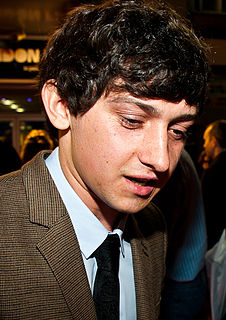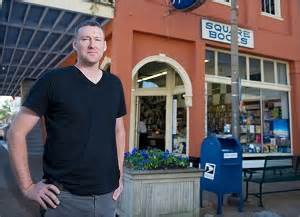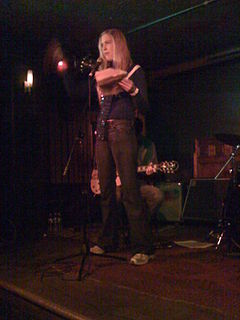A Quote by Neel Mukherjee
I think there's a joy to be had in taking readers where they just don't want to go. If you are writing a properly realist novel, then don't blink. Why not see something for what it is and render it truthfully? I find it a good way of going about writing - not to blink.
Related Quotes
I shift between mediums very frequently. Instead of taking a break from writing, I just write in a different medium or in a different way or for a different purpose, so that I don't actually stop writing - I just go to something else. Like going from a big symphony to a piano piece is great and very refreshing, I find. And then going from that to a big concerto, and then having to go out and play.
When I get about five readers I can rub together in one genre, I leave that genre and go somewhere else. And this is due to a vow that I made myself when I started writing - that if I had any success at all, I would not be bound to one form of writing. That I would write what moves me. The only way I can see me surviving and doing more than one book is to present the readers with a Dan Simmons novel, with whatever tropes and protocols from whatever genre I want to borrow them. If that builds a Dan Simmons readership, well then, okay. Otherwise, forget about it. I'd rather drive a truck.
I think all writing is about writing. All writing is a way of going out and exploring the world, of examining the way we live, and therefore any words you put down on the page about life will, at some level, also be words about words. It's still amazing, though, how many poems can be read as being analogous to the act of writing a poem. "Go to hell, go into detail, go for the throat" is certainly about writing, but it's also hopefully about a way of living.
If I'm writing a novel, I'll probably get up in the morning, do email, perhaps blog, deal with emergencies, and then be off novel-writing around 1.00pm and stop around 6.00pm. And I'll be writing in longhand, a safe distance from my computer. If I'm not writing a novel, there is no schedule, and scripts and introductions and whatnot can find themselves being written at any time and on anything.
I don't think about the reader in any conscious way that impacts the writing, as far as, Hey, most readers would like this! But at the same time, if it were presented to me: "John, you're going to write a novel. It's going to take you a few years. When you're done with it, there's a law that no one's allowed to read it." I don't think I would write it. I want someone to read it!
I would rather not write if I'm depressed, or am going through a breakup, or I've had some disappointment, or I'm having a family issue. You don't want to just put out an open wound. Sometimes that just isn't even really good writing. Good writing should be good writing and storytelling and not just therapy or someone's personal journal.
What I think is important about essayists, about the essay as opposed to a lot of personal writing is that the material has to be presented in a processed way. I'm just not interested in writing, "Hey, this is what happened to me today." You get to a place that has very little to do with your personal experience and talks about some larger idea or something in the culture. I don't think you can get to that unless you have had a lot of time to gestate and maybe if I was taking a lot of notes while stuff was going on, I wouldn't be able to get to that place as easily.
After my first novel, my mother said to me, 'Why don't you make your writing more funny? You're so funny in person.' Because my first novel was rather dark. And I don't know, but something about what she said was true. 'Yes, why don't I?' Maybe I was afraid to be funny in the writing. But since then, seven books later, almost everything I've done has a comedic edge to it.
When I started writing short stories, I thought I was writing a novel. I had like 60 or 70 pages. And what I realized was that I don't write inner monologue. I don't want to talk about what somebody is thinking or feeling. I wanted to try to show it in an interesting way. And so what I realized was that I was really writing a screenplay.






































